You don't need an accessory to record a voice memo on your iPhone or iPad, but what if you want to capture audio during a one-on-one interview, in a studio session, or when you're rocking out at a live gig?
For that you'll need something a little higher quality, so an external microphone is the accessory you'll need.
Decent third-party mics for iOS devices come in all shapes and sizes – from clip-on wired lavaliers to fitted stereo condensers - so there's plenty to choose from depending on your needs.
We've rounded up the best options on the market, each of which have a proven pedigree of delivering detailed audio captures, whether that's for single-room sessions or open air recordings.
Note: we've ranked these from cheapest to most expensive according to prices at time of writing.

If money's tight, the Movo PM10 could fulfil your needs. The lavalier style mic keeps things simple by connecting via 3.5mm mini jack, while on the other end of the cord you'll find a windscreen and a clip to attach to clothing.
The big plus is that it doesn't require powering, but the audio quality isn't bad either. It's a bit flimsy compared to more expensive lavalier mics and the cord could be longer, but that's splitting hairs at this price.
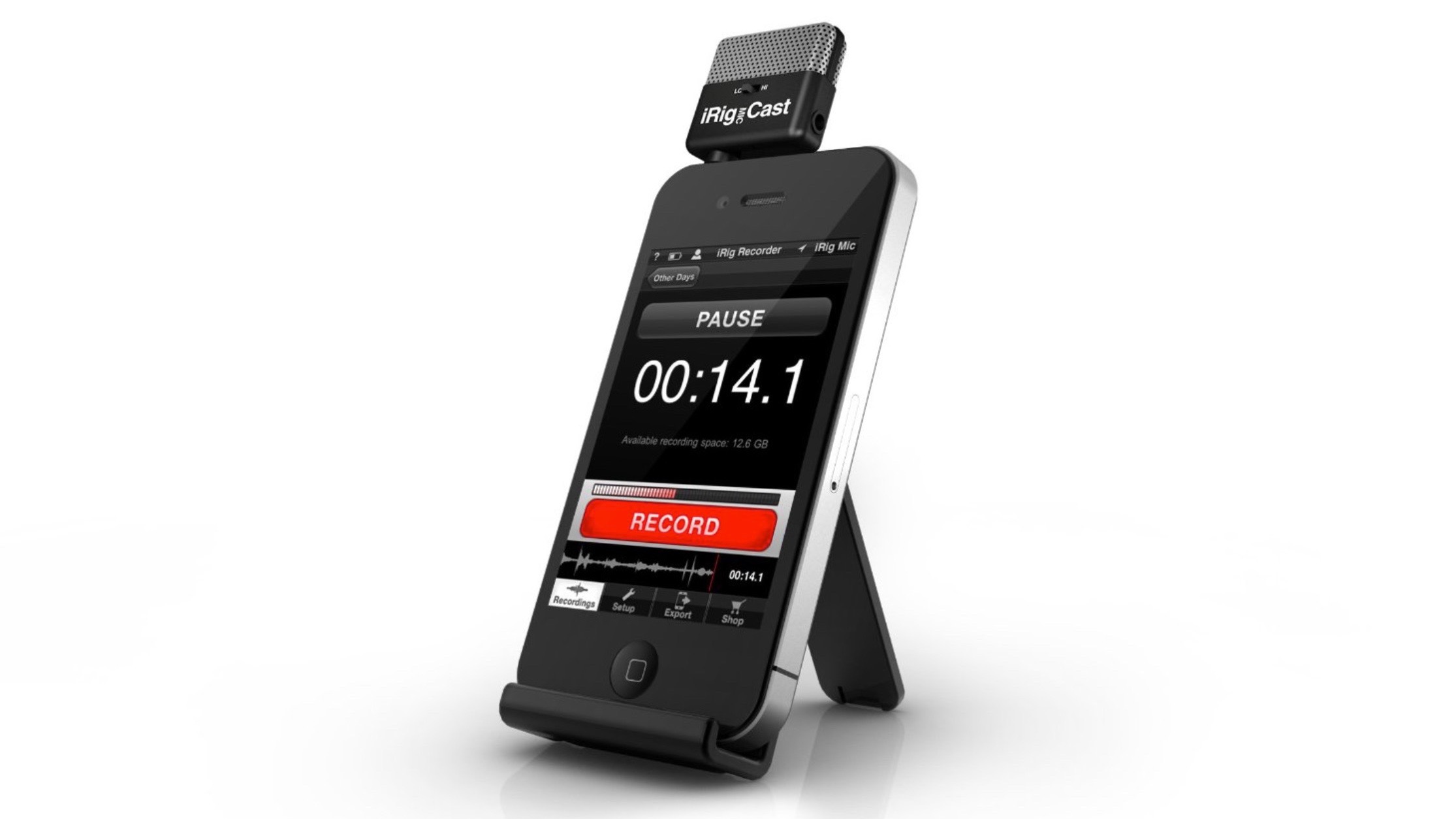
iRig's compact mic is specially made for podcasting or field recording, and has a couple of neat touches to help enhance the audio for both.
For one, it's case-friendly, so you can keep your iOS device protected when it's connected.
What's more, the rectangular condenser offers a unidirectional design that effectively rejects noise for a cleaner recording, while a high-low sensitivity setting offers flexibility for capturing audio in different environment - plus thereS a desktop stand for seated interviews.
Best of all the iRig mic has a stereo headphone jack built in, so you can monitor your recording as it happens.
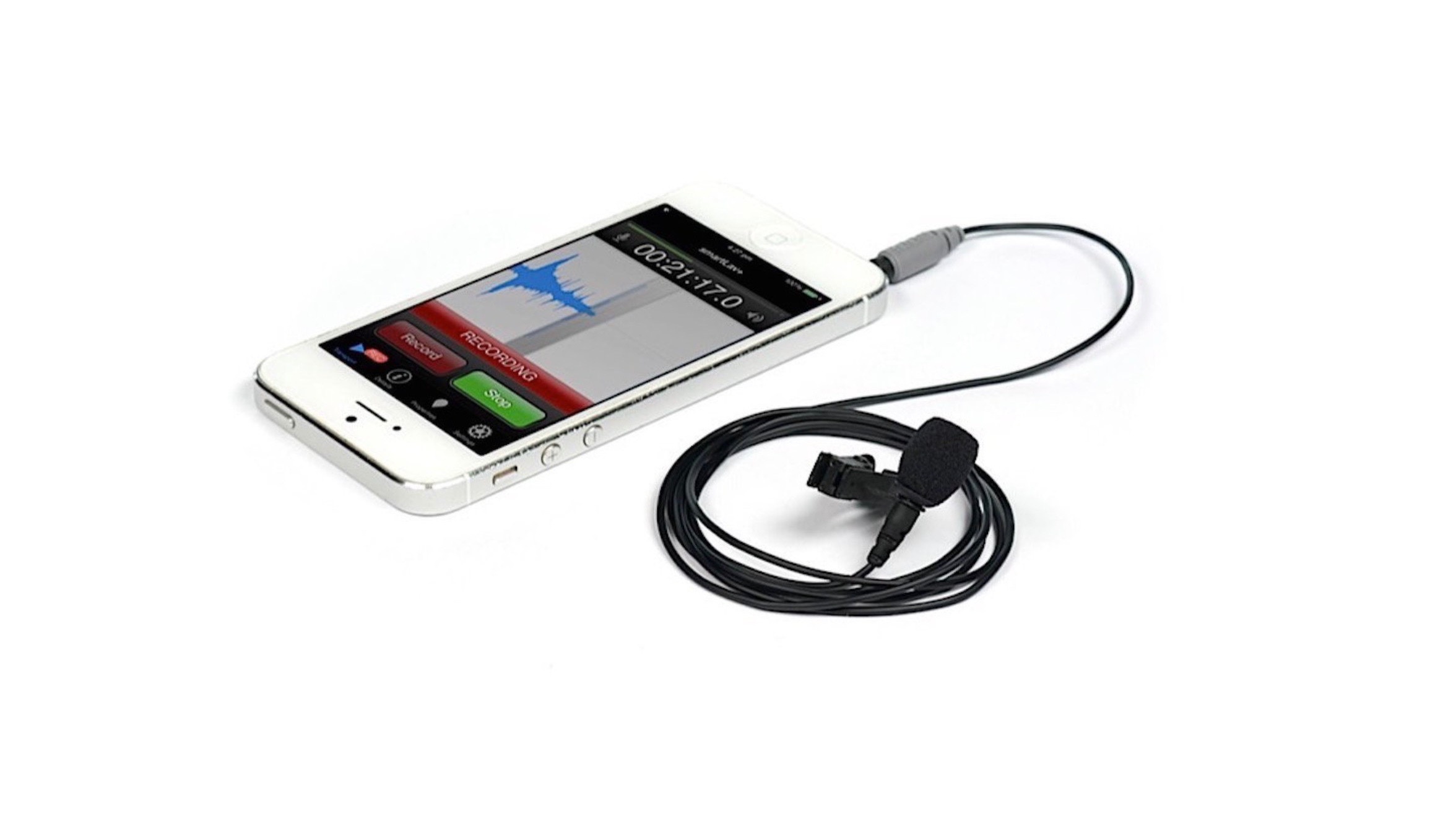
If you tend to record the spoken word while you're out and about, the hands-free lavalier style is likely to be the most convenient mic for you.
The Rode smartLav+ is a step up from the cheaper Movo PM10, but the extra dollar gets you a higher-quality omnidirectional condenser capsule (which improves sound quality) and a Kevlar-reinforced cable to offer a longer lifespan for your microphone.
The mic comes with a windshield and a durable mounting clip, along with a soft carry pouch for storage.
Users shouldn't forget to download the polished Rode REC field recorder app, which packs a good range of EQ presets for different usage scenarios.
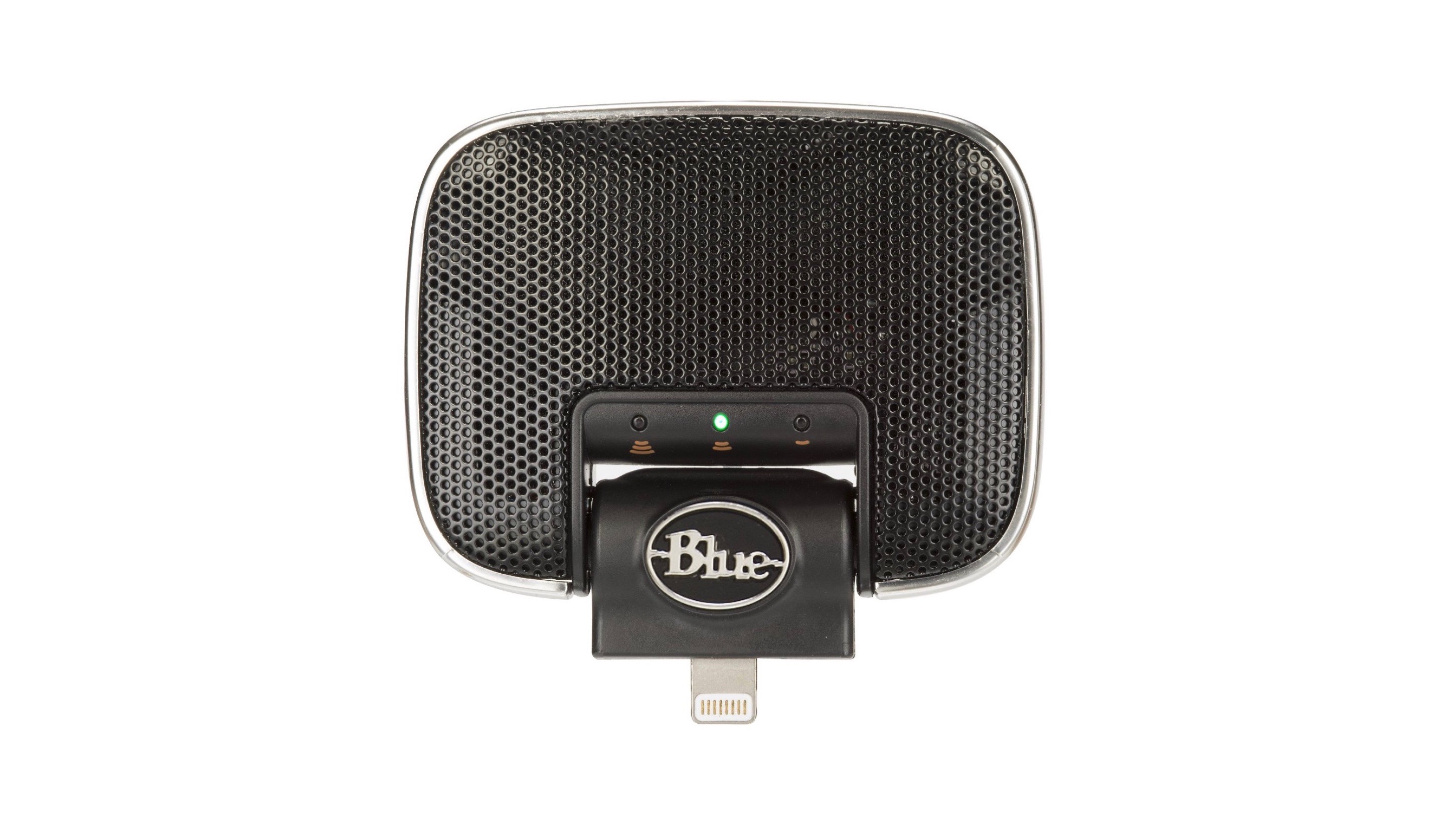
The compact design of the Blue Mikey Digital has been a hit with mobile users for a few years now, and for good reason.
Encased in the diminutive condenser mic are enough electrics to power an input jack for instruments, an external charging source, and some gain and level adjustments, not to mention a Lightning connector.
The swivel mount rotates 230 degrees, and you can suck in audio at 44.1kHz / 16-bit audio quality.
Overall it's a doozy, although owners of the iPhone 6 or iPhone 6S should note the Mikey blocks the headphone jack - and by taking the Lightning port, iPhone 7 are out of luck too.
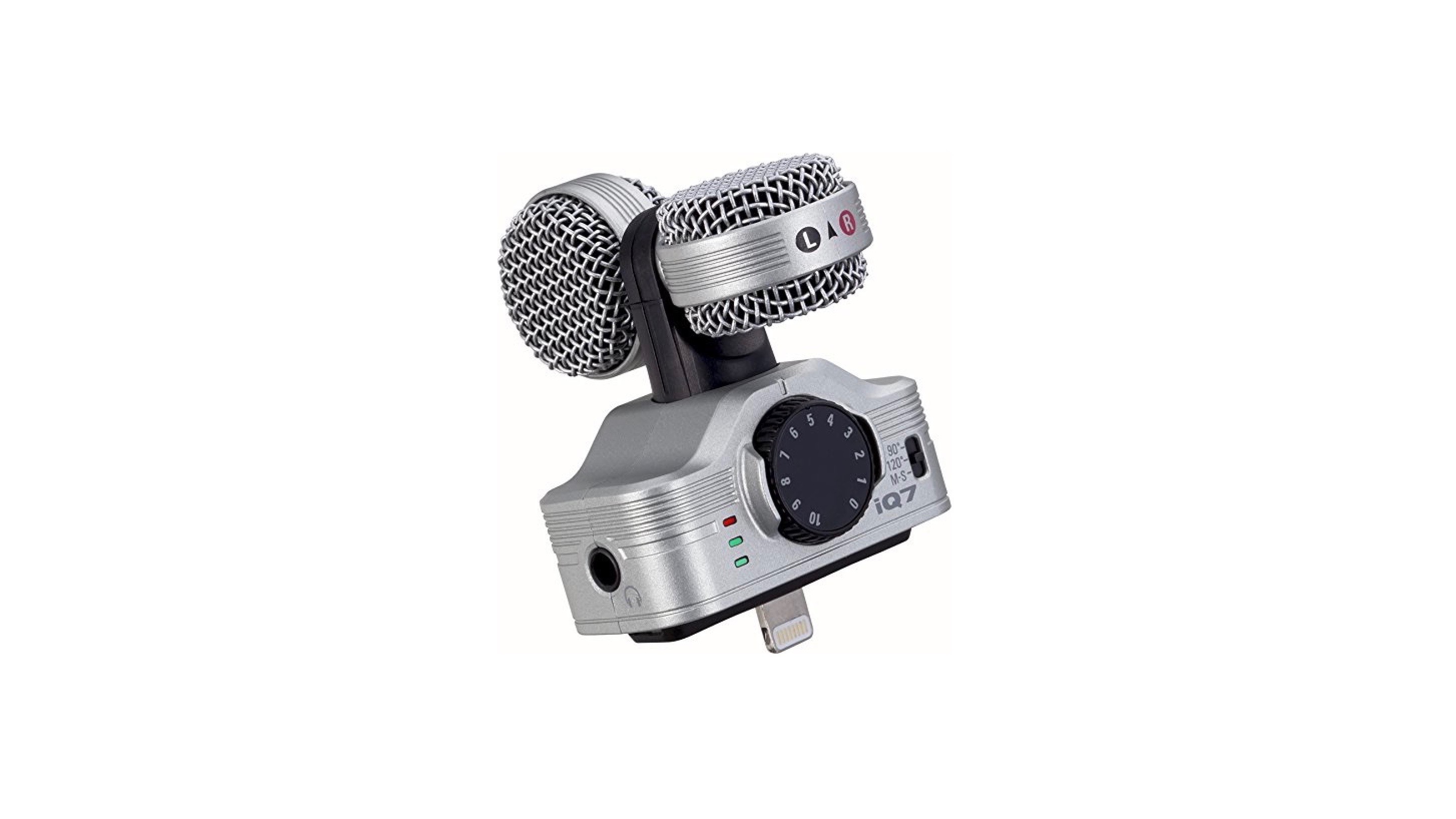
Zoom's iQ7 is a stereo condenser mic with a twist. Labelled 'mid-side' for its two microphone elements, the directional 'mid' mic captures audio coming from in front, while a bidirectional "side" mic covers the signal all around you.
Add to that the ability to rotate the two microphones independently and you've got the perfect setup to capture a wider area of sound.
A three-way stereo width switch lets you point your recording to focus on an individual source, or 120 degrees for a more expansive soundstage.
The HandyRecorder app is potent too, with plenty of features and editing tools to get the most out of your 48kHz/16bit audio.
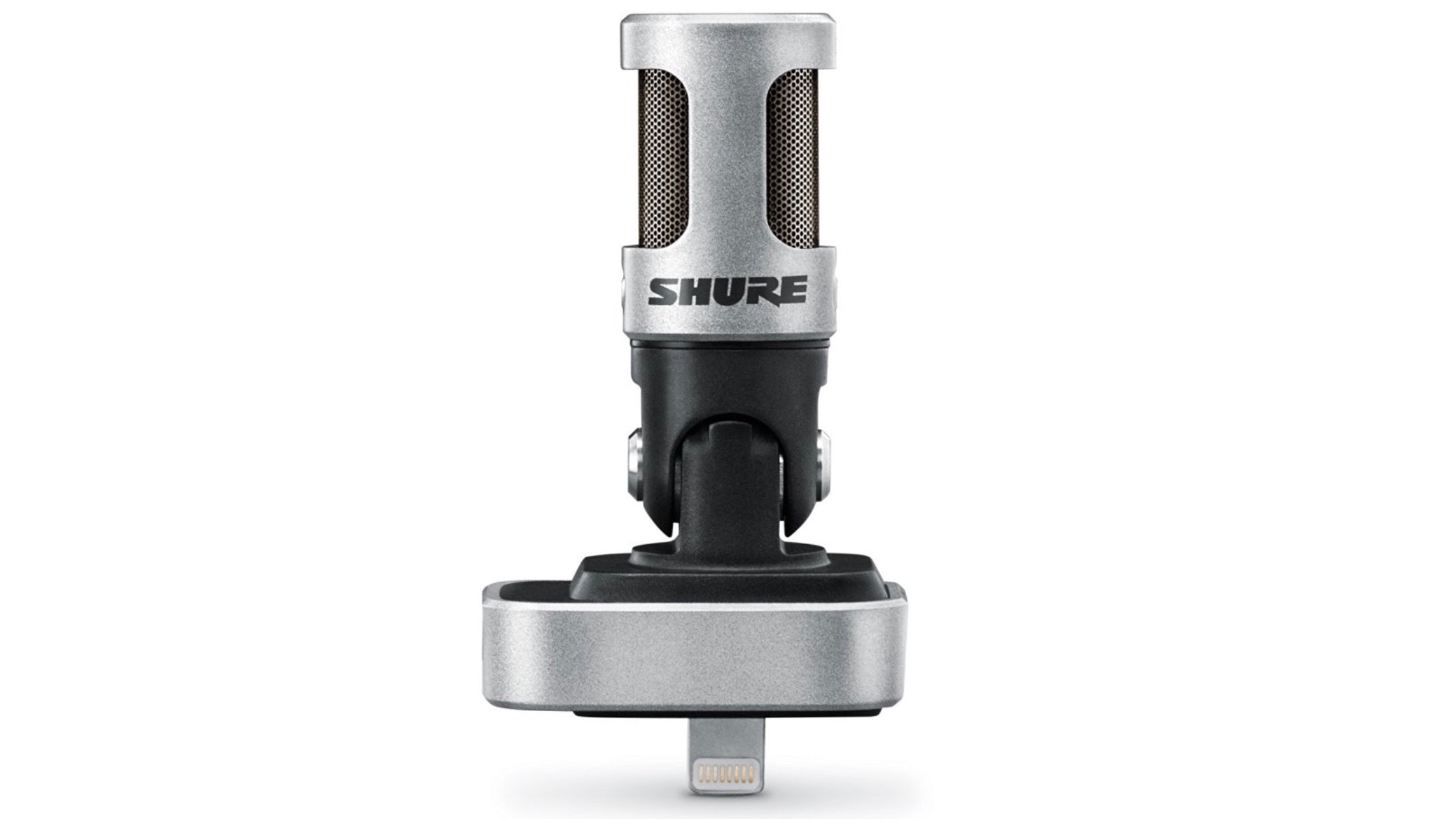
Another mid-side condenser mic for iOS devices, the Shure MV88 uses matched cardioid and bi-directional cartridges for a clear stereo image.
The Lightning compatible, all-metal construction digitizes your recordings in high-performing 24-bit/48kHz audio quality, while the 90-degree hinge on the mount lets you rotate the mic capsule in the optimal direction to more effectively pick up your source.
The ShurePlus Motiv app is extremely well-designed for the unit and has five integrated DSP modes for different use cases, including speech, acoustic, singing, loud and flat.
It's just a shame there's no way to power the MV88 other than by sucking up your phone's battery - and it's not like you can attach an external battery pack.
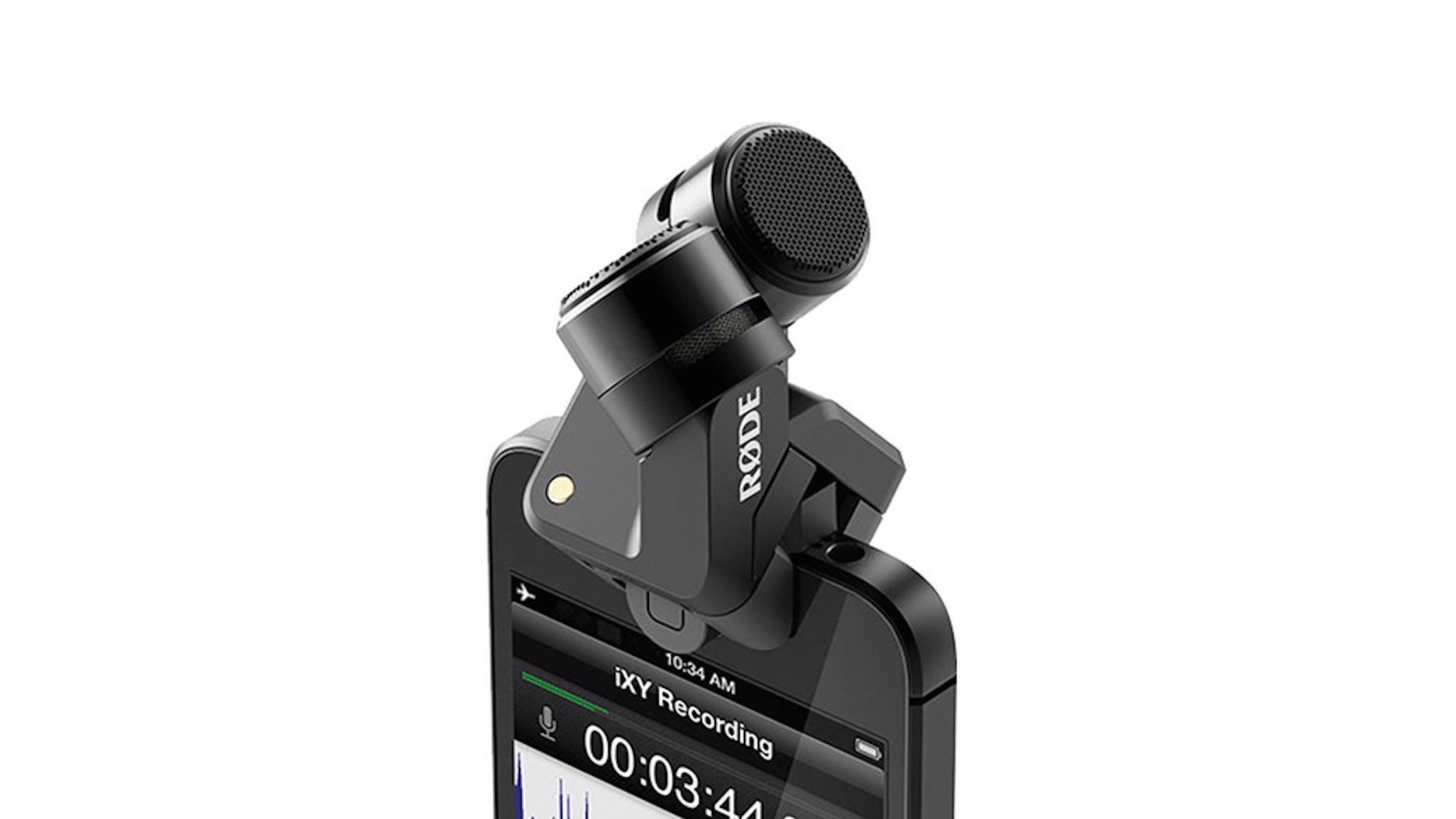
If audio quality is top of your list of essentials and you're willing to pay for it, Rode has a microphone to fit your needs.
The IXYL captures 24-bit/96k audio for exceptional clarity at this size. It's sturdily built too, with the two 1/2-inch cardioid condenser capsules placed at 90 degrees from each other for a wide soundstage.
Accessories-wise, you get a foam windshield and a zip carry case, along with the serviceable if clunky Rode Rec recording app.
The mic supports the iPhone 5S, iPhone 5 and iPhone 5C, and if you've not upgraded to Lightning yet, Rode also offers a 30-pin version called the IXY.
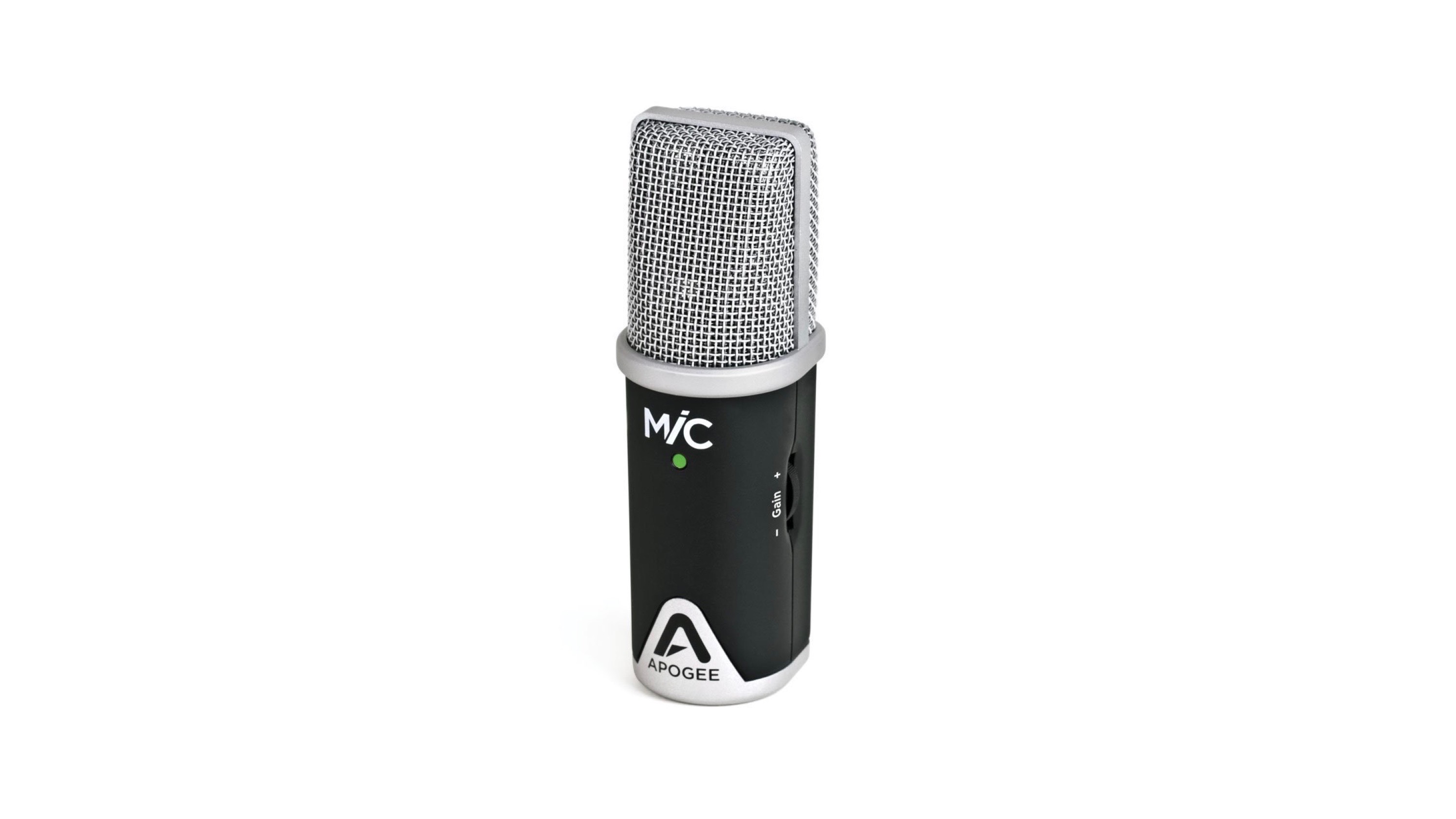
If your budget is limited, look away now. The Apogee MiC 96k may trim some weight off your wallet, but it's one of the most appealing table-top condenser microphones for mobile users and an ideal solution for podcasters.
The mic attaches via a USB-to-Lightning cable and comes with an adjustable mini tripod for stationary recording. The mic itself is plug-and-play, can capture 24-bit/96kHz audio quality at up to 40dB of gain, and features an LED status light in its metal casing, with a control dial for adjusting input.
There's no external power option though, so you might want a mobile charger spare for your iOS device when you've finished recording and want to keep using your phone.
- Now check out the best headphones
from TechRadar: Phone and communications news http://www.techradar.com/news/8-of-the-best-third-party-ios-microphones
No comments:
Post a Comment